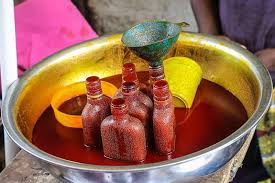Ghana Targets $2bn Palm Oil Import Bill with Ambitious Domestic Production Drive
Ghana is advancing plans for an ambitious agricultural policy to cut its $2 billion annual palm oil import bill by scaling up domestic production and diversifying into high-value tree crops.
Outlined in the 2025–2028 Medium-Term Expenditure Framework, the policy will see the rollout of a National Palm Oil Industry Policy, including the distribution of 1.5 million oil palm seedlings to farmers, the promotion of large-scale out-grower schemes, and incentives to expand local processing capacity.
The initiative—dubbed the “RedGold” oil palm programme—is designed to catalyse private-sector investment, create thousands of rural jobs, and support the government’s import substitution and agro-industrial transformation agenda.
Despite annual consumption exceeding 250,000 metric tonnes, Ghana’s domestic production is just 50,000 tonnes, creating a substantial structural gap in the edible oils market. The new policy aims to build a fully integrated palm oil value chain from farm to refinery.
The palm oil strategy forms part of the broader Ghana Tree Crops Diversification Project (GTCDP), which seeks to boost commercial cultivation of cashew, coconut, rubber, mango, and shea alongside oil palm, to enhance farmer incomes and generate foreign exchange.
In 2025, under the Ghana Tree Crops Development Programme (GTRDP), the government will procure and distribute 5.07 million seedlings nationwide—comprising two million cashew, 1.65 million rubber, and 1.42 million coconut. An additional two million seedlings, including 500,000 shea and 1.5 million mango, will target 500,000 farmers across the country.








